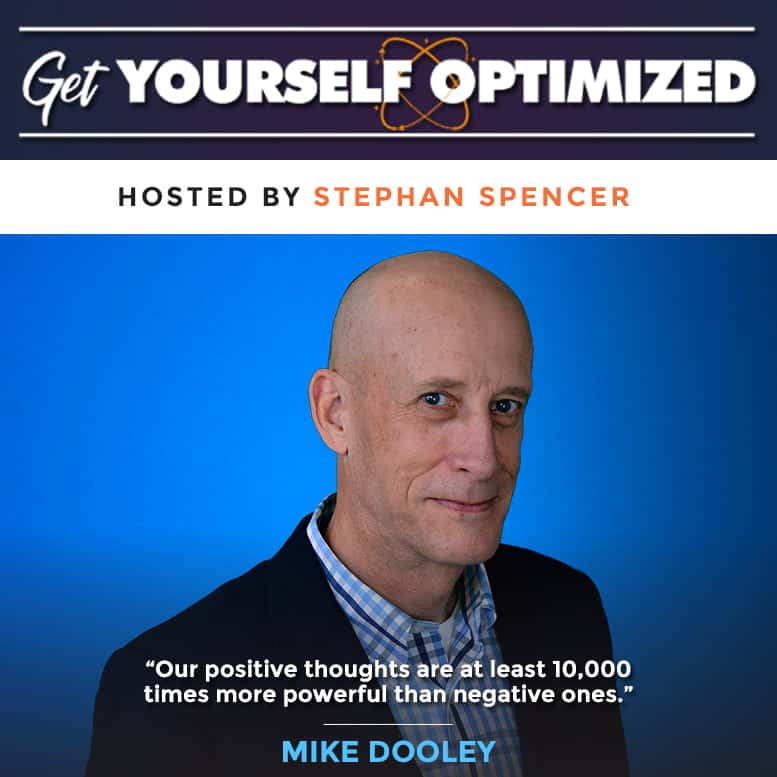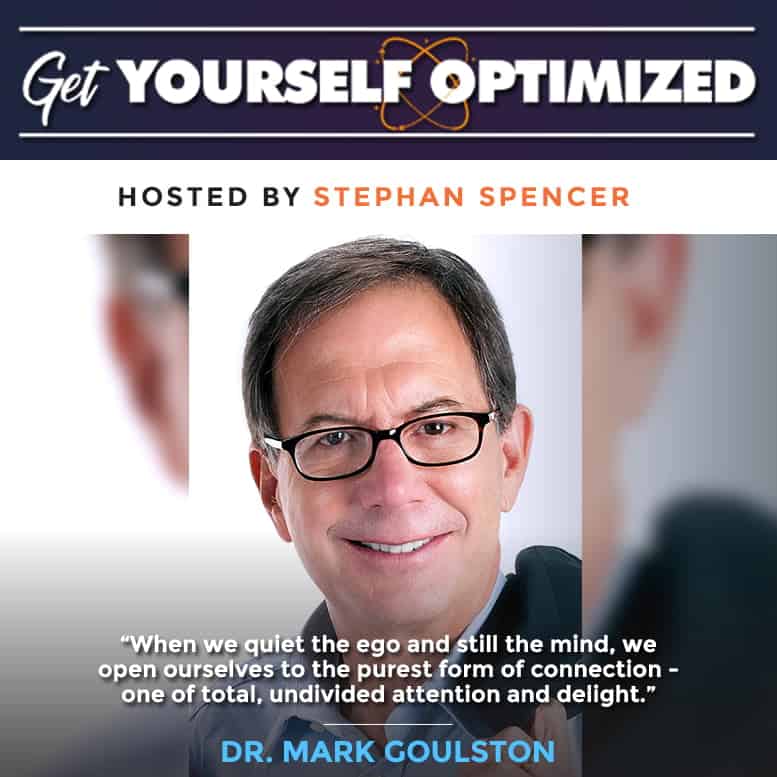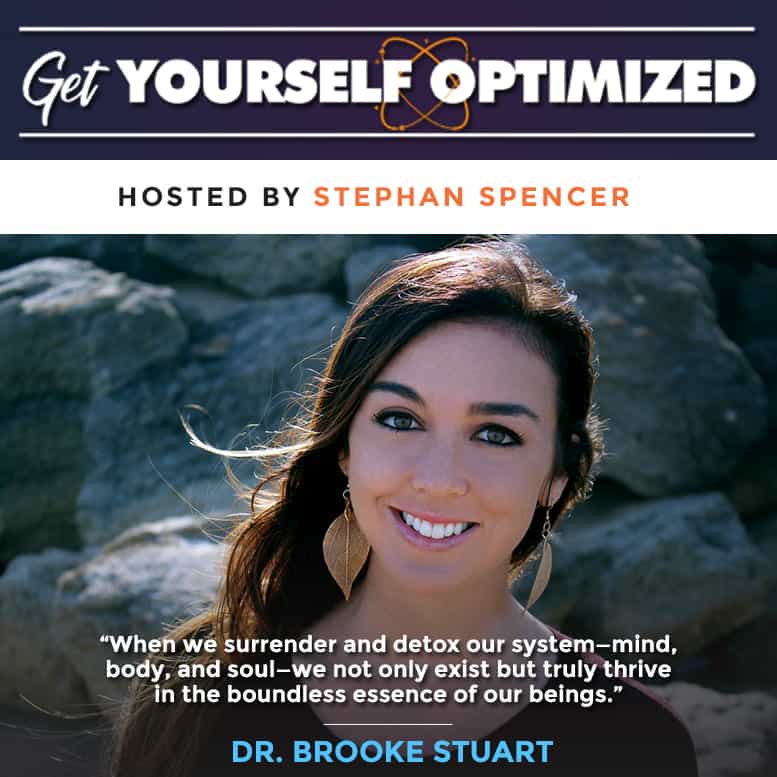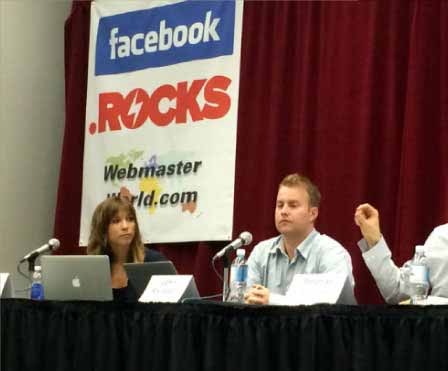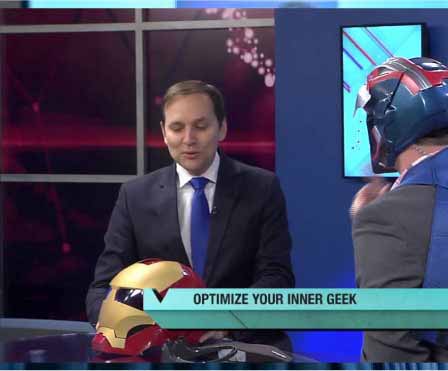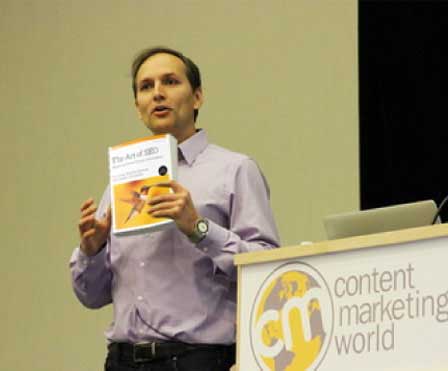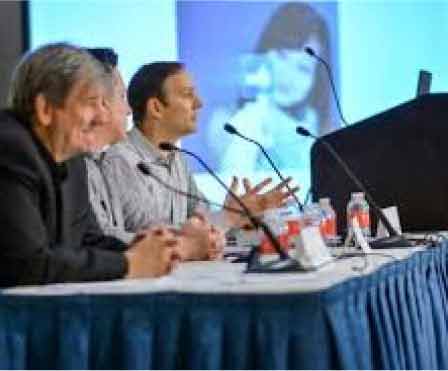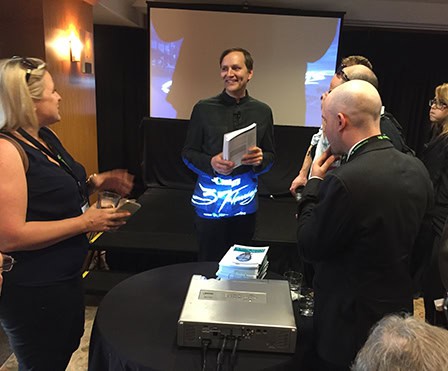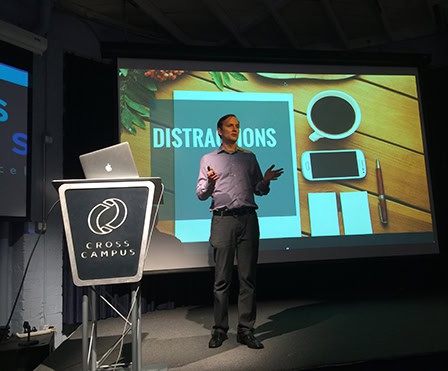In this Episode
- [00:37]Stephan welcomes Dr. Sam Qurashi, who has over 700,000 followers on Instagram, as they walk through his experiences as a Psychiatric Resident in an Addiction Hospital and pursue a new path of helping more people.
- [02:28]Sam shares his background and the turning point that led him to seek a conclusive resolution of people’s problems.
- [07:28]Dr. Sam felt that 95% of his patients felt abandoned and betrayed while working at the addiction hospital. He explains the reasons why some people suffer from it.
- [13:12]Stephan and Dr. Sam discuss the importance of listening and trusting your higher self and your body.
- [23:19]What can we do to manage and eliminate our triggers? As Dr. Sam describes how emotional wounds develop, he provides some ways to manage them.
- [25:51]How do our emotional struggles affect our mental health?
- [27:17]It is important to be honest about your feelings. What prevents people from being truthful about their feelings was explained by Dr. Sam.
- [33:50]Stephan shares doing gratitude journaling, leading Dr. Sam to explain narrative shifting. In addition, he differentiates between owning responsibility and acknowledging a mistake.
- [40:54]Closure is important. Stephan wants to know Dr. Sam’s personal experience of closing the loop from a trauma.
- [46:02]Dr. Sam emphasizes the importance of connecting with and changing our relationship with our emotions.
- [53:00]Explore Dr. Sam’s Instagram (@samqurashi) and Patreon page to gain insights into how you feel, think, and behave.
- [54:09]Dr. Sam expounds the phrase he created two years ago, “The right to express is not a license to abuse.”
Sam, it’s so great to have you on the show.
It’s great to be here, Stephan. So good to see you.
It’s so good to see you and it’s so good to be seen by you. I’m wanting for our listeners to really understand your origin stories so that they can ride that wave with you—the story arc, the story of struggle, the hero’s journey because you’re in a very different place than when you started. If you could start there, that’d be a great entry to this episode.
I tried to help as many patients as possible. I stumbled upon obstacles and hurdles that made it hard for me to connect with people.
Perfect. As you mentioned, I worked in a psychiatric addiction hospital for about seven years. During that time, I’ve seen over 10,000 patients with all kinds of addictions you can imagine. I lived my entire life in Saudi, studied in Saudi, studied medical school, and practiced there. Throughout that period of time, I tried to help as many patients as possible. I stumbled upon, I guess, obstacles and hurdles that made it hard for me to connect with people.
One of them is that we were always understaffed. Because of that and because of the pressure, we didn’t have that much time to spend time with patients. I realized that patients benefited from the attention I offered more than the prescriptions themselves. It got me thinking, just by sitting with a patient and listening to them and then making a few adjustments to the way they think by shifting the narrative in their life, suddenly things began to change. It starts by listening. A lot of the patients aren’t actually listened to.
I actually had a conversation with Mark Goulston yesterday. We were catching up. He’s the author of Just Listen, probably one of the best, if not the best book. He was talking about the idea of clinical empathy versus tactical empathy versus surgical empathy. With clinical empathy, it’s very transactional, it’s very transitional. We’re just okay, we’re ticking boxes as doctors and moving on. We don’t have that much time with every patient so we’re just going through the motions instead of really listening to the patient and asking them what’s going on.
I didn’t have that much time, but I tried to give them as much time as I could. Over time, as I kept on doing this, I noticed that there are different issues related to the idea of just constantly prescribing medication and having that even though it’s helpful, but it doesn’t really solve the problem. It’s like a biochemical crutch. I would love to prescribe medication for a short period of time.
Actually, I did prescribe medication for a short period of time for people that, let’s say, develop a substance-induced psychotic disorder, which is psychosis from drugs. They didn’t need the medication for longer than the period of time that I prescribed.
It’s constantly pushed and we’re pressured by the administration to prescribe it for much, much longer than needed, and obviously, a drug, remember. In medicine, one of my pharmacology professors once said something that I have never forgotten since. He said, “A drug without a side effect is a drug without an effect.” If you have a very strong effect, there’s going to be a strong side effect that you’re not even aware of.
Responsibility is the gateway to freedom and peace. Avoiding responsibility maintains the emotional and mental paralysis we're in. We remain trapped because we're not taking action. Click To TweetWhen we’re using medication, especially psychiatric medication, it’s important to identify how long or just to plan how long you want to give it. Do you want to give it for how long? Do you want to give it for a very long time or a short period of time? But aiming to shorten the duration as much as possible without affecting the patient in a negative way.
I think it’s easy for psychiatrists in general. When I was working at the addiction hospital, it’s easy for us to just keep prescribing. I mean, it just happens. For many, many reasons, the frustration that I had with the system, the frustration I had with constantly being pharmacologically focused instead of psychologically focused in a way that actually solves the problem, because I always wondered, when somebody develops, let’s say, depression or psychosis, yes, it’s within our genes. But epigenetics really, is what shifts things.
Basically, buttons have been pressed and I believe buttons can be unpressed. There’s always another gene to deactivate the gene that was activated. I just wanted to explore the idea of, okay, so an external stimulation led to a cascade of situations that basically led to the biochemical shift that is now temporarily permanent. We’re giving medication for that.
Is there a way to resolve it in a more conclusive way so that it’s no longer an ongoing thing that people need to deal with on a regular basis for the rest of their lives? I have a lot of questions, a lot of different thoughts about this. I wanted to find a more definitive answer. Whether I find it or not, it doesn’t matter. Pursuing it gets me closer, maybe gets someone else closer. Maybe I can share what I have. Maybe that can help people. That’s what helped me make the decision to leave as a starting point and then I walked away.
Was there a particular patient, a particular interaction that was a pivotal moment for you? Like, okay, now I see my path.
There’s always another gene to deactivate the gene that was activated.
I don’t recall that. If I don’t recall that, that either means that there is like for some reason, I’m not connecting with it, I never did or there isn’t. But one thing I can tell you is I noticed that of the 10,000 patients, this is my rough estimation, about 95% of the 10,000 came from broken homes, which I thought was interesting. I thought it was really interesting.
What that means is there’s trauma. There’s a sense of separation from the people that brought them into the world. There may be a link to betrayal, usually when there’s a separation that might actually result in children perceiving a situation as a form of betrayal, either by both parents or one of the parents.
That’s the child, that may not be the case and probably isn’t the case. That’s not what the parents intend but that’s how children would perceive it. If that is the case, then what ends up happening is it creates this trauma that is unresolved. That shifts their beliefs, it shifts their behaviors. That pain, I guess that wound festers and that pain persists. Then as they get older, they want to find a way to stop the pain.
When people go into addiction, some people talk about curiosity, it’s really about escape. It’s an escape. It’s an adaptation. Escape is a form of adaptation. But the question is adaptation to what? It’s usually adaptation to pain, adaptation to that wound that they either didn’t know existed or don’t know how to resolve.
They numb the pain.
Exactly, numbing the pain because it doesn’t really solve the problem. It is a powerful tool that needs to be acknowledged. But is it the temporary solution? No. That’s why we hear about withdrawal symptoms from SSRIs like Prozac that may last for months and maybe even longer. Some people suffer for much, much longer. Mikhaila Peterson talked about that when she stopped taking antidepressants.

There are withdrawal effects. There are side effects when you use them. They do help, but they don’t solve the problem. The problem is within the trauma itself. Is it possible to create an external stimulation? That was my question. Is it possible to create an external stimulation that creates a shift in this biochemical shift that already happened within us to reverse it? That was one of the questions that led me to leave and focus on that.
One more thing about this is I realized that one-to-many would be a lot more effective than one-to-one because I can reach more people. I wanted to learn more about the mind. That’s what got me down that rabbit hole. That’s why I started interviewing who I like to call unorthodox psychologists, people that have uncovered things that science is catching up to. Someone like Wim Hof, The Iceman. I mean, he’s brilliant, a dear friend of mine.
The pickpocket in the UK, James Brown. Pickpockets have been studied by neuroscientists for the last 20 years, maybe even longer, but they’ve already known prior to that. They’ve stumbled upon aspects about the brain through experience, through attention management, that neuroscientists are beginning to unravel. That’s why they’re studying them because the concept of shifting someone’s attention is extremely important. The applications would be huge. The applications will be extremely useful for any human being.
That’s the reason I didn’t learn to pickpocket. We don’t know what’s going to happen to the world. I’m kidding, but the idea is learning about pickpocketing is really about learning about attention management. Because if I can learn to manage attention, then that application can translate into helping someone else maintain their attention on what I’m sharing, distract them if they’re caught up in their head to get out of that to avoid a conflict, or maybe it’s to maintain my attention and prevent anything or anyone from distracting me when I want to focus.
There are a lot of applications that come with someone like the top pickpocket in the UK, as an example.
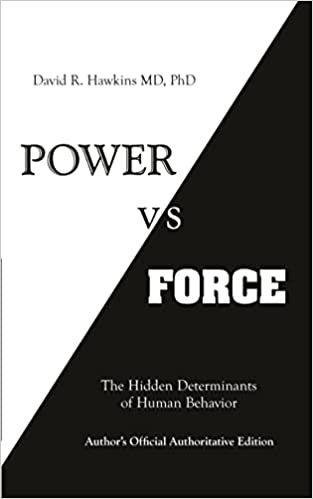
Have you ever taken any SSRIs or other types of psychotropic or psychoactive drugs, the kind of stuff that you would be prescribing or you’d be working with your patients who had been prescribed by others? Have you ever taken those yourself?
No. I think there was a period of time in my life that I went to a psychiatrist. That was prior to becoming one. I bought the Prozac, but I didn’t use it. I didn’t use it. There was an internal resistance to it. I didn’t really think of it until now that you’re mentioning it. I haven’t really thought about that. But as I’m thinking back to that moment, the internal resistance was, no, this is not the way.
That’s not to say that it would have been wrong to take it for a short period of time. Because at the end of the day, the doctors are doing their best. When I was a psychiatric resident, I was doing my best. This is helpful. I want to highlight that, this is extremely helpful. It’s important to basically explore the options you have with your physician, with your psychiatrist. So I’m not saying don’t take it, of course not.
But you also need to listen to your body and if your body is saying no, if it’s your higher self saying no, you need to listen to that as well. Of course, it’s not medical advice, consult your physician blah, blah, blah, all disclaimers apply. I’ve found that muscle testing and other ways of tapping into your innate knowledge, innate wisdom, and also your higher self is really instructive and helpful. I’m reading a book called Power vs. Force. Are you familiar with that book?
I heard of the book, but haven’t read it.
Applied kinesiology and there’s real science, hard science behind this. The premise is simply this, you’re muscle testing to see if something shows up strong or weak. If you hold a particular drug, supplement, vitamin, or whatever’s in your hand and you don’t even see what it is that you’re holding, your body knows. How does it know? Because your higher self knows. Your higher self sees what’s happening and is responding, giving you that feedback so that you don’t take it or you take it depending on what the most benevolent outcome would be.
Absolutely. Trusting your own body. This ties into something else. I remember this from one of my mentors who was talking about mental and physical illness and how that’s linked to inauthenticity, not expressing the truth. There’s a truth that is hidden, a truth that is suppressed, a truth that we fear exposing. That suddenly creates that internal suppression and creates that internal conflict, and we start operating with incongruence becoming authentic.
Suddenly, mental and physical illnesses emerge as a way to make us realize because when something demands our attention, especially in our bodies, it means that something is at tension in our lives. Listening to the body and listening to what’s happening, different symptoms can be linked to emotional wounds that we’ve never dealt with. Absolutely, absolutely.
The emotional components usually are really the most neglected when it comes to mental and physical health. Interestingly enough, with physical health, the emotional component is neglected when in fact, if you think about it, from a physiological standpoint, generalized vasoconstriction in vessels, lowering oxygen comes from the emotional component, lower oxygen. Nevertheless, I mean, when you think of trauma in and of itself, that’s linked to whatever tension we hold in our bodies.
The right to express is not a license to abuse. Click To TweetThe muscle tension in the body throughout the body prevents blood from flowing properly. That in and of itself affects because hypoxia is in pathology. The first chapter, first page, the factors of disease—a number of factors is hypoxia, when you don’t have enough oxygen. We can look at it from both angles because if the body’s trying to let us know what we need to work on, that’s one aspect but the other is living in fear.
Living in hyperactive, hypersensitive amygdala activity unnecessarily over and over and over throughout the day is constantly exhausting our nervous system, our immune system. The constant stress could just be because of the hypersensitivity of the amygdala in and of itself. So there’s a lot there.
When it comes to, for example, self-development, they focus on beliefs and behaviors. This is one of the issues I have with the industry, focusing on beliefs and behaviors and neglecting the third component, which is emotions.
You change your belief, you change your behavior. You change your behavior, you change your belief. That’s true. A lot of people struggle with that. A lot of people, even if they make a change, the change is not lasting and it’s an ongoing battle. The question is, why is it an ongoing battle? Well, because belief and behavior are adaptations to something else that they grew out of as well, and that’s emotions.
If you look at behaviors as a branch, belief is the trunk. You can chop the branch, you can chop the trunk, the tree will grow back, but emotions are the root. If you release and dissolve the emotional wound that gave birth to these beliefs and behaviors that were meant to protect you, then these beliefs and behaviors will no longer be there.

It’ll be easy to change, the change will be long-lasting, and they may even happen all by themselves. All you have to do is focus on the emotional wound instead of changing. It’s like I’m trying to adapt to the existence of that thorn in the soul of my foot, but whatever I do is an adaptation to its existence.
But if I remove the thorn, then a lot of the adaptations that I’ve done for that, I don’t have to change the way I walk to cope with the fact that there’s that wound. I don’t have to tell people not to press on it or not to interact with me in a way that makes it pressed or that forces it to be pressed or triggered in any way or form I get to.
It’s like a nail in your tire. You could keep adding air to the tire and then it slowly leaks out, but it’s more of a disease maintenance state than a health and wellness state, or you should take the nail out, patch the tire, and that’s a permanent fix.
Exactly. Triggers actually are a good example. Once there’s something that bothers you, that triggers you, what are the different options that you’d have in terms of dealing with them? Someone said something that triggered Stephan, what would Stephan do?
Personally, for where I’m at now in my life, I would be protective in regards to that trigger. What is that trigger? Why is it triggering me? What am I meant to learn from this? How do I heal it versus avoid the situation or avoid getting triggered in the future by reducing contact with the person who triggers me?
That’s one example. Everything that you said is great. The last thing you mentioned is an example of what other people or maybe how Stephan in the past would have behaved. You’d basically potentially cut people out of your life or distance yourself from them. That’s one, and that’s what a lot of people would do.
When our body demands our attention, something is at tension in our lives. Click To TweetIf someone would threaten the person like if you’ll ever do that, again, I will do this, this, this, that to kind of induce fear in them so that they don’t do that again. Some people do that. Some people would be honest about how they feel and express how they feel, which is actually a really healthy way depending on how you do it, depending on if the other person actually knows how to receive emotional expression in a healthy way and doesn’t judge you for it.
The fourth one, which is the worst actually, is the person does nothing. It suppresses them. They just hold back, they don’t do anything. They hope the person is not going to do that again. All four have one thing in common. All four are basically trigger management.
They’re managing the trigger. They’re basically finding ways of telling people, please don’t press that trigger. I don’t want to feel what I’m feeling now and I’ll do whatever it takes. These are different ways of making sure that we manage the trigger. But the problem with trigger management is it keeps the trigger alive.
Once we take responsibility and realize that their behavior has nothing to do with us, their behavior is basically coming from their pain from their fear, how we feel about their behavior is our responsibility. Suddenly, we take back all the control because if we’re operating in the way of please don’t press the button, we’re giving people way more control over us. We’re waiting for them to save us instead of us releasing what we have.
Emotional processing eliminates the trigger.
Usually, in relationships, especially in intimate relationships but in general, they are a reflection of what we need to work on in terms of the wounds that we’re still carrying until this moment. When it comes to something like this, emotional processing eliminates the trigger. If this repeats, you’re not going to feel triggered.
You have a choice of either responding to them or not, but you don’t have to respond to them because you’re not destabilized emotionally. Emotional processing is not about you not feeling bothered. It’s about you not being triggered, i.e., emotionally destabilized, which means you can either respond but you’ll respond in a totally different way.
You’re not responding because you need them to stop, you’re just letting them know that this is not within your value. This is a boundary because eliminating a trigger doesn’t mean people are allowed to violate your boundaries. That’s the other side.
Do you have an example, for you personally, of an emotional wound that led to a trigger that you have managed to eliminate?
I had a lot of emotional wounds that I needed to heal. For some reason, nothing’s coming up, but here’s what I will tell you. My mentor was mentioning an example of that so I’ll share that. If something else comes up, I’ll let you know immediately. Nothing’s coming up at this moment, but just to be clear, I had a lot of emotional wounds and therefore a lot of triggers. I worked with the wounds to release them in order for the triggers to go away, to be dissolved as well.
An example, one of my mentors was telling me about how he used to arrive on time, people are always late, and that triggered him. I think a lot of people that are listening would relate to that one. He would usually suppress the emotions. Like, okay, they arrived, but he just keeps it in.
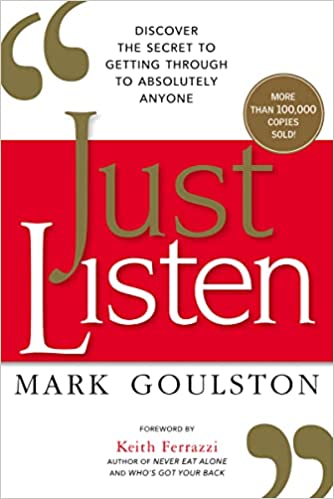
Sometimes when he talks, he’s going to sound very aggressive because there are a lot of emotions at that moment because he’s been holding on to it. He realized that, hold on, why am I being triggered? The question is, what’s the emotional wound that gave birth to this trigger?
It could be something unrelated to someone being late. It could be related to that specific scenario, but not with that person. It probably hasn’t started with that person. It started with someone in the past.
A loved one late for every recital or performance throughout his childhood. That was a reminder, don’t count on people who are going to be late for you.
He didn’t tell me the emotions, but I can guess, if that were the case, he would be having emotions of betrayal, abandonment, resentment, anger, and frustration. Frustration is a strong one when someone’s late and you have that. There are different emotions that are linked to that, so he worked on them.
At the end of the day, people were still late, but it no longer triggered him. What we need to realize is a lot of times, what we’re going through, we’re asking others to change. When in fact, most of the problems really are we’re feeling it. This is not victim-blaming, I want to clarify that. This is not about enabling people to continue behaving because releasing the trigger doesn’t mean you can’t enforce your boundaries.
You absolutely must. In fact, three things that people struggle with on an emotional level that is affecting their mental health, (1) people don’t express the truth about how they feel, (2) people say yes when they actually mean no, and (3) people don’t enforce their boundaries. If those three are resolved in the lives of people around the world, imagine the level of pressure that can be released in people’s lives.
If you start enforcing your boundaries, it’s not about not being triggered. It’s about your boundaries not being violated. It’s important to get rid of the triggers because that takes away the power that people have over you without them even knowing that they have it because the trigger comes from outside. It could be an internal trigger. You could remember something that happened and then you get triggered. The memory itself is a trigger, so that’s one thing.
They’re all, by the way, tied into truth if you think about it. Enforcing your boundaries is expressing the truth about how you don’t want to be treated. You’re suppressing it if you don’t enforce your boundaries. When you say yes when you actually mean no, you’re not expressing the truth about what you want and how you feel about the request.
Being inauthentic, essentially.
Enforcing your boundaries is expressing the truth about how you don’t want to be treated.
Exactly, which takes us back to the idea of authenticity that I mentioned earlier. The third one, the truth about how you feel. Expressing the truth about how you feel is so important. It ties into something else, which is people fear expressing the truth about how they feel, about what just happened, about what happened in the past. The reason for that is they fear rejection.
Fear is the number one cause, but there are many different types of fear. They fear being rejected. They fear being judged because the judgment would lead to rejection in the minds of people. That fear stops them from dissolving the emotion and then it starts to affect their mental health.
You don’t have to share how you feel to someone else, by the way. You can express it on your own, but people don’t do that. But if you do want to express it to someone else, it’s important to clarify how you express it. It’s important for people to learn how to receive as well.
If you’re expressing the truth about how you feel about something, it’s important for me to not judge your emotions because they’re yours. They’re not mine. I can’t understand how you feel. I can imagine how it might feel based on my life, but I can’t truly know how you feel.
A lot of people talk about emotions as something that somebody needs to earn. I’ll give you an example. Physical pain and emotional pain. If someone has shoulder pain, how ridiculous would it be for the person in front of them to say, no, you don’t, prove it to me. I had that, it’s not that bad, you don’t deserve to feel that shoulder pain. Something like that. The list would go on and on, but that’s how we deal with the emotional pain of others.
A lot of people would basically judge someone for feeling something like, you don’t deserve to feel that or I felt that and it’s not as bad as your exaggerating. The thing is we don’t know what’s going on inside of them. Emotions are subjective.
Even the kids all the time. They’re like, you don’t want that. What do you mean? Denying the kids reality. If you don’t want that, really? You know what’s going on inside their heads better than they do.
No one has the right to judge how someone else feels.
Yes. What they really need is basically to be listened to, to be heard, to have their emotions appreciated, acknowledged, and validated. These are your emotions. You have the right to feel exactly what you feel.
The way you behave based on these emotions, that’s a different conversation. But if you’re feeling something, no one in the world has the right to basically declare whether it’s deserved, whether it’s earned, or whether it’s acceptable. No one has the right to judge how someone else feels.
The opposite is true from the person that is feeling these emotions. Never be ashamed of how you feel because how you feel is yours and you’re feeling it. When you’re judged, they’re inducing shame in you. They induce shame, you suppress the emotion. But the emotion is never something that was meant to be suppressed. The emotion is never something that was meant to feel ashamed about.
Obviously, that’s another emotion in and of itself. We are ashamed of expressing the other emotion, so now there’s another emotion that is suppressing all the other emotions. It becomes this constant battle internally, and a lot of people are going through this right now. They’re not expressing how they feel. They’re not dissolving the emotions.
When you’re judged, they’re inducing shame in you.
The idea of thoughts and emotion, it’s like the chicken and the egg. I think, I feel, I feel, I think. What came before the other? The thought is not the problem, it’s the emotional charge linked to the thoughts. Thoughts can emerge as an adaptation to the emotions.
The reason why dreams are a form of thoughts. It’s an expression internally, mentally. If you basically have suppressed emotions about an experience in the past, the thoughts while you’re awake is just the mind reminding you of what you need to resolve, a conflict that is still running that hasn’t been resolved. It’s a loop that hasn’t closed. If you sleep and you dream of it, it’s the unconscious mind again bringing it up.
We tend to suppress what is meant to be expressed because we can never untether from what we don’t connect with. We’re constantly trying to avoid the thing that needs to be released. But the thing can’t be released if you don’t connect to it, which are emotions. A lot of people hide. An example would be addiction.
Yeah. That shows up then in physical ailments. The issues are in the tissues.
Yes, absolutely. Journaling is an example. Journaling is really powerful. However, a lot of people fear expressing how they feel because they feel that if I express it, if I write it or say it out loud, then it becomes real. The truth is thoughts would be more dangerous in that sense. If you don’t express, write, or say out loud a thought, you don’t allow it. You don’t feed it, which is a good thing.
You feed thoughts by expressing them and emotions by suppressing them.
If you have a negative thought and you choose not to express it, that’s a good thing. Thoughts aren’t real until you say them out loud, until you write them down. Emotions are already real. You’re feeling them. They’re inside you right now. You’re feeling the anger.
Denying it doesn’t make sense. Actually, you feed thoughts by expressing them, you feed emotions by suppressing them. What should happen is the opposite, so more emotional journaling would be even more effective.
Journaling in general is actually really powerful regardless because there is an expression of the truth about what’s going on. But if we want to get too advanced here and focused, emotional journaling is a lot more effective.
The kind of journaling I do is gratitude journaling. The piece of that that I found most effective and valuable is to rest gratitude for the challenges and the things I didn’t want. Sincerely, because that helps me to zoom out and see things from a bigger perspective like how does this actually serve me? It’s everything, ultimately, is for our highest and best good we just haven’t zoomed out far enough.
Thanks to the person that triggered me, I’m now aware of what I need to work on.
Narrative shifting. Absolutely, narrative shifting is extremely important. When we shift our narrative, suddenly, something is not happening to us, it’s happening for us. One thing that one of my mentors was talking about in terms of relationships is thanks to the person that triggered me, I’m now aware of what I need to work on.
That’s shifting the narrative instead of blaming them. That doesn’t justify what they did, depending on what they did because maybe the trigger may not be intentional. The trigger may be something that is normal for everyone else, but for me, it’s a trigger. Regardless, it’s my responsibility.
There’s a difference between I’m responsible and it’s my fault. A lot of people avoid responsibility because they think responsibility is a burden. Responsibility is the gateway to freedom. It’s the gateway to peace. Avoiding responsibility is maintaining the emotional mental paralysis we’re in. We remain trapped because we’re not taking responsibility.
There’s a difference between I’m responsible, and it’s my fault.
Whatever happens to us, we’re all victims in the moment that happens to us. At the moment it happens. What happens next is we either stay victims, we become villains, or we become heroes A hero—this is my definition. I wrote a quote on it on Instagram. “A hero is a victim that decided to take responsibility.“
That’s the shift because if you’re still a victim, you haven’t taken responsibility. That doesn’t mean that what happened to you is your fault because we cannot control what happens to us. What we can control is what we do about it and how we respond to it. Pain may be inevitable, but suffering may be optional.
Maintaining that pain that you’ve had because of what happened, that’s your responsibility to get rid of it, to resolve it, to dissolve it, to allow the nervous system to reintegrate and rewire. That’s our work as humans.
Cognitive behavioral therapy is based on the model, the activating event A plus the behavior of somebody or yourself equals C, the circumstance. But then you reevaluate that, put a different pair of glasses on, see through different eyes, and you say, oh, well, actually, that behavior or that circumstance is not all there is to it, and you reevaluate.
The activating event still could trigger you to some degree, but you have this new perspective on it. I think it’s A plus B plus C plus D equals E. You get a new experience. The E is the new experience and then D is to debate. I forget what the D stands for, but you’re running it through your new lens.
You shift the narrative, and suddenly your perception changes.
The narrative shifting. The new lens is because of the narrative. You shift the narrative and suddenly your perception changes. The thing here is if your perception changes, psychotherapy, CBT, you could provide a narrative shift. You can provide coping mechanisms as well, so you have the combination.
The thing here is what would make it even more effective is connecting to the trauma or connecting to the situation and the emotional charge linked to it, expressing the truth about how you feel in a certain way to dissolve the emotions. Now you get rid of the poison and then you shift the narrative.
An example, in trauma, the negative charge is usually released. One of the ways to do that is exposure therapy. You tell the story of what happened over and over and over and over until it becomes a boring story, until there is no triggering. There is no emotional charge linked to it, then you replace it with a narrative shift. Once that happens, you’re basically securing a new destination because there’s nothing left behind.
A more effective way would be expressing the truth about how you feel and then you shift the narrative instead of telling the story. But the beauty of that is that you’re kind of neutralizing the effect. By saying it over and over, you’re expressing the truth over and over and over. You’re not tackling how you feel. That may come along as you’re telling the story of what happened, but you’re not tackling how you feel.
That would be a more effective way to address it. Express how you feel, then focus on shifting the narrative, and then the behavior will change automatically. You can even work on the behavior. But as long as you’re in pain, I can change the narrative.
Thoughts can emerge as an adaptation to emotions.
Like you just said, I might still be triggered, but at least I have coping mechanisms that I have coping tools, and at least I have a narrative shift that allows me to look at things in a more empowering way. But what if we express how we feel, dissolve the motions, and then we do that? Then you have a more holistic approach that resolves it entirely instead of focusing on analysis.
Why is very important. But when it comes to how we feel, and this is based on my experience with why we feel doesn’t matter, how we feel is everything. I could talk about the story of what happened over and over in a mental attempt to make sure that it never happens again, to get rid of what’s inside. How about we focus on how you feel to get rid of what’s inside? Then you can tell the story if you want, but it lacks the emotional charge now.
You just say it one more time to close the loop because closing the loop is really important. Phobias happen when we keep telling the story, when we see the thing over and over. We get to the climax of the story, the climax of the trauma, but we never finish the film. We never finished the film because by finishing the film, we’ll realize that we survived and that closes the loop.
We never close the loop. We go back until the height of the trauma, the intensity of it, we go back again over and over and we never finish the film. Closure is important, but it starts with expressing how you feel to make it extremely effective.
Do you have an example from your own personal life where you’re able to close that loop? Maybe it was something that bothered you for years and then you addressed it?
Yes. There was a person in my life that, yeah, had done something that I’ve held a lot of resentment towards them because of it. No matter what I did, I can change my perception, change the way I look at things, and change my behavior, but something was still there. I realized that by addressing how I feel, that shifts everything because that dissolves the emotion, I no longer feel resentment towards the person. Realizing that it’s not about the person, it’s about how I feel.
Nevertheless, what they did was not acceptable, but the feeling was the crippling thing. What everybody does is really about, I just want to feel what I felt. I don’t want to feel that feeling ever again. I want to do whatever it takes to make sure I don’t feel that again, but we don’t release what’s inside, and I did.
We never close the loop.
I worked on several things related to that person. I worked on different scenarios. It wasn’t just about the person, it was about scenarios linked to the person. I worked on the emotions linked to each scenario.
It’s not just resentment. It’s important to clarify this. When you go through a process like that, it’s not just about resentment. It’s the most obvious one, but it’s not the only one. As you dig deeper, there’s always more.
On top, we have resentment. You go down, you will find anger, you’ll find shame, you’ll find frustration, you’ll find a sense of betrayal. I feel betrayed when I think about that. Betrayal has anger and resentment already within it, but betrayal is not an emotion. Nevertheless, it’s a way to express. It’s summarized as a cluster, but whatever you feel is what matters.
A lot of people try to simplify it by saying, I feel blank. That’s it. No, no, no, no, no. We are so much more complicated than just having a single emotion linked to an experience.
Yeah. Betrayal is not an emotion, it is an accusation.
To the other person. But to yourself, you experience betrayal from the other person. That’s your feeling. That’s how you feel. If someone says, I feel betrayed, there’s a chance that the other person didn’t betray you. What matters in this moment is you’re honoring how you feel. You’re not accusing them of something.
Journaling is really powerful.
Let me give you an example of a conversation with someone else. If someone wronged you, and you had a conversation by saying, when you said that thing last week to me, I can feel anger or I feel anger. The statement is truthful. It becomes inauthentic when you say you made me feel. No one makes you feel. They just behave in a way that allows you to access something within you that you feel that is already there.
The idea is, when I say that to someone, when you say blank, which is what they said, there is no lie there and there is no accusation, they said it, I feel this or I can feel this. I’m not accusing them. I’m not judging them. I’m simply telling them how I feel.
It’s a way to make them feel safe as well. Because at the end of the day, I’m telling you, this is how I feel. I just wanted you to know. It’s very different. People don’t usually talk that way. People usually don’t receive a message like that. But it begins to break and interrupt a pattern, because people tend to feel like—you know what, we have four stress responses, really, the fight, flight, freeze, and fawn.
What people don’t realize is we do have defaults, depending on different people, different situations, or it could be a universal default. When someone is pressured, what’s their default stress response in their life? Freeze, that’s stagnation. Fight, that’s aggression. Flee, that’s evasion. Fawn, that’s submission.
The one that can lead to resolution, interestingly enough, is fight because it’s confrontation of what you fear, but you don’t have to fight. There are other ways. It’s about moving towards and connecting. I would say the word connect as a response, not a reaction. We don’t need the four stress responses in our lives, but it’s the thing that our nervous system goes to immediately.
Yeah. I learned something in India when I went to Oneness University in 2013, and that was, let the tiger devour you. If you’re feeling something unpleasant, run to it. Feel it fully, as you were saying. Let the tiger devour you and then it subsides.
Absolutely. We can only release what we connect to. We need to connect. If I were to summarize this whole thing, it’s really about changing our relationship to our emotions. The way we engage with our emotions is what determines what we believe, the way we behave, and the way we perceive others. It’s really about changing the way our relationship to emotions.
We can only release what we connect to.
That’s the starting point. It starts with expressing, staying with emotions and feeling emotions, which is important. I have noticed a lot of people, when I ask them that question, I try to sit with my emotions and I don’t know what to do. I’m just sitting there in the morning thinking about that thing that happened, allowing myself to sit with the emotion, and feel the emotion.
Feeling it silently may not be the answer because if you think of the four stress responses, that’s natural. All four require motor stimulation. Guess what, writing how you feel is. That’s motor stimulation. Guess what, saying out loud how you feel, that’s motor stimulation.
The scream they do, the scream therapy. Why is exercise so good for us? Why is art good for us? Some people express how they feel by painting, but that’s motor stimulation. Motor stimulation is at the heart of expressing emotions.
The question is, okay, so if I’m sitting there, I’m feeling the bubbles rise as I’m going through it. I’m connecting with this thing that’s hurting me silently. The bubbles rise to the top, but they don’t reach the surface. A lot of people don’t even want to get there. They just want to push it down back to the bottom of the ocean in their mind.
The people that want to get rid of it, they’re sitting with their emotions, and they don’t know what else to do, the emotions may reach to the bubbles. Emotional bubbles may reach the top, but they never burst because bursting requires motor stimulation. The most effective one, the most laser-focused one is expressing the emotion you’re feeling in that moment.
Don’t be ashamed of how you feel.
Any activity can help, but focus on the emotions you’re feeling, what are you feeling? A simple thing is I feel or I can feel and keep going. Just by saying, what are you feeling? What am I feeling? I feel blank, I feel angry, I feel suffocated. Good as in good, say it. Say it.
Don’t be ashamed of how you feel. Don’t trim down, lower the percentage of it, or just minimize it by saying, I feel a bit angry. No, own it. I feel angry. It’s okay. You’re alone, you’re expressing how you feel. We have reached a point where a lot of people around the world feel so uncomfortable expressing the truth about how they feel out loud to themselves. That’s from the conditioning that’s been happening as we kept on growing through our lives.
Do you do this in front of a mirror or do you just go into a quiet room? How do you express this out loud in a safe space?
You could express it out loud to someone or you could express it out loud to yourself, and it doesn’t have to be a mirror. You could just say it out loud. Saying it out loud releases it, or writing it down.
What I would recommend would be to think of something that bothers you, something that keeps on coming up. Write it down, when I think about blank, whatever the blank is, I can feel blank. Blank would be anger or whatever the feeling you’re feeling and keep repeating that sentence.
Write it down. I can feel blank, I can feel blank, I can feel blank. Whatever it is, I can feel anger, I can feel frustration, I can feel resentment, I can feel rage, I could feel fury. Whatever it is. It can be resentment or resentful. Whatever language you choose, whatever’s right for you is what matters.
Unresolved trauma from a young age shifts a person's beliefs and behaviors. Unfortunately, that wound festers, and that suffering persists. Click To TweetAnger, not a bit angry, and avoid why. This is the greatest pitfall that people fall into when they are feeling something linked to the past. They will immediately go down a why. Like, why did this happen to me? Why did they do that? How could they do that?
If you say, I feel resentful because, now you’re going down a rabbit hole, you’re not going to finish this exercise. The key here is to focus on I feel blank and you keep going. You don’t ask why. You don’t go through the because. It doesn’t matter who you feel it towards.
You may say I feel resentment when I think about what that person said. I feel resentment, but I’m not sure if the resentment is towards them or towards myself. It doesn’t matter. What matters is you’re feeling it. If we focus on the feeling and avoid the distractions, you will reach a point where you will have a list that has emotions that you did not even realize.
This is why I encourage for starting with this writing because now you’re capturing emotions that you didn’t even know you had, and allow yourself to go through that. One thing I would say is you can start with I can feel. But if you start really feeling the emotions, then what’s more authentic is saying, I feel. It’s not I can, it’s now I feel. Whatever feels right, one of the two sentences. It’s crystal clear because I is the ownership.
Feel is the verb that connects you to what you are feeling, the emotion. No more words. That’s all you need. You keep doing this until you’re done, until there’s nothing else to come out.

What I would recommend after that is an exaggerated breath, as follows, (breathing) five to seven times. I’d go for seven. What that does is it closes that simple practice and it’s something simple. This is not as a practitioner. There are many different processes that are very effective, that are more powerful. But this is something simple that people can do to chip away at the emotional charge, at the emotional impact of how they felt about something, and it begins to take it away.
Very cool. I know we’re out of time. If we could give them a next action, I think it would relate to what are these 700,000 followers on your Instagram, or however many people are following you or supporting you on Patreon, what are they primarily getting? Why are they there to receive this content and wisdom from you? What would be a nugget that you’d share as a closing thought or idea for our listeners?
People that follow me on Instagram and people that go deeper on Patreon, what they’re getting is a deeper insight into how they feel, how they believe, how they behave, and how they can shift that. My quotes are basically thought-provoking, but it’s not thought-provoking in a way. It’s a very safe space. I create a very safe space on both Instagram and on Patreon to allow people to question.
I shift the narrative indirectly through the Instagram page and Patreon by getting people to think and look at things differently. I gradually describe and focus a lot on emotions because that has been the most neglected thing in education. I think children would need to learn this in schools.
Living in hyperactive, hypersensitive amygdala activity unnecessarily over and over is constantly exhausting our nervous system. Click To TweetThere’s a great quote I found on your Instagram. “I can’t learn to recover what I’ve never lost.” That’s just one example of such profound wisdom that you share with your fanbase and supporters. It’s really profound.
I deeply appreciate that. I’ll add one more, which is, “The right to express is not a license to abuse.” This is an old quote that I wrote probably two years ago, but it’s extremely important. Just because we have the right to express, doesn’t give us a license to hurt others and abuse others. With the right to express, comes the responsibility of expressing in a way that is very respectful, that is authentic, but respectful to others, that is kind to others.
We don’t need to create conflict through expression, especially if it’s about finding the truth. It’s not about being right. It’s about finding the truth. It’s about connecting. It’s about creating cooperation and collaboration instead of competition and rivalry because that will destroy us as humans.
Awesome. Thank you so much, Sam. What’s your website, your Instagram, and your Patreon for our listeners to go deeper?
My Instagram is @samqurashi and Sam Qurashi as well on Patreon. You may find it as one word or as Sam Qurashi.
Thank you. Thank you, listeners. I hope you get out there and do some good in the world, feel better, feel fully, and make it a great day. I’m your host, Stephan Spencer, signing off.
Important Links
Dr. Sam Qurashi
Facebook – Dr. Sam Qurashi
Youtube – Dr. Sam Qurashi
Patreon – Dr. Sam Qurashi
Power vs. Force
Just Listen
Checklist of Actionable Takeaways










 About Dr. Sam Qurashi
About Dr. Sam Qurashi
Dr. Sam Qurashi is a Writer, Entrepreneur, Instagrammer, and Youtuber. He worked as a Psychiatric Resident in an Addiction. Throughout that time, he had the opportunity to help over 10,000 patients. After seven years, he walked away from his medical career, believing that there must be a more effective way to help people.
He started interviewing experts living beyond traditional psychology but are masters of the mind in a unique way. That list includes The Iceman, The Horse Whisperer, a Samurai, a Cold Reader, a Ninja, a Tea Master, and a Pickpocket, and the list goes on.
He then started an Instagram page that now has over 700 thousand followers. On his page, he shares thoughts and concepts that can interrupt the psychological patterns that are keeping people trapped in mental loops of their own design.
Disclaimer: The medical, fitness, psychological, mindset, lifestyle, and nutritional information provided on this website and through any materials, downloads, videos, webinars, podcasts, or emails is not intended to be a substitute for professional medical/fitness/nutritional advice, diagnoses, or treatment. Always seek the help of your physician, psychologist, psychiatrist, therapist, certified trainer, or dietitian with any questions regarding starting any new programs or treatments, or stopping any current programs or treatments. This website is for information purposes only, and the creators and editors, including Stephan Spencer, accept no liability for any injury or illness arising out of the use of the material contained herein, and make no warranty, express or implied, with respect to the contents of this website and affiliated materials.
LOVED THIS EPISODE
Please consider leaving me a review with Apple, Google or Spotify! It'll help folks discover this show and hopefully we can change more lives!
Rate and Review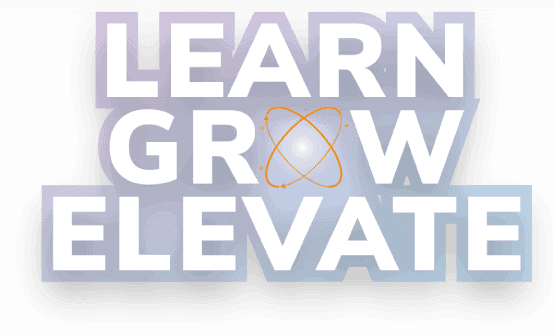








 About Dr. Sam Qurashi
About Dr. Sam Qurashi